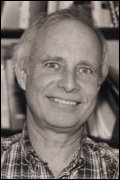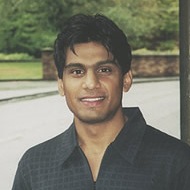TITLE: Paradox and Progress: Exploring Urban Culture in Amsterdam through Trans-disciplinary e-Research
SESSION (CLOSED)
PREFERRED THREAD: STS in practice (methods, research networks, computer tools)
3 KEYWORDS: e-research, urban culture, geo-tagging
AUTHOR 1
NAME: Paul Wouters
INSTITUTION: Virtual Knowledge Studio for the Humanities and Social Sciences, Royal Netherlands Academy of Arts and Sciences
ADDRESS: PO Box 95110
1090 HC Amsterdam
The Netherlands
TEL: 3120 4628654
FAX: 3120 6658013
EMAIL: paul.wouters@vks.knaw.nl
AUTHOR 2
NAME & INSTITUTION: Clifford Tatum, University of Washington
AUTHOR 3
NAME & INSTITUTION: Julie Villegas, University of Washington
ABSTRACT:
Chair: Paul Wouters
Research Leads: Clifford Tatum & Julie Villegas
Student Presenters: TBA
Electronic networks and computer-mediated communication have been integrated into collaborative research across boundaries of space, time, and culture. These emerging e-research practices are potentially changing key aspects of the interaction and character of scholarly work. Presently, our understanding of their potential is quite limited. This international collaboration involves senior researchers and Master students in a collaborative Summer School of the Virtual Knowledge Studio (Royal Netherlands Academy of Arts and Sciences), the Honours Programme of the University of Washington (Seattle), and the International School for the Humanities and Social Sciences (University of Amsterdam). Our aim is to develop innovative social science methods by employing digital technologies in a reflexive research design. Data collection and analysis techniques will include still image photography, sound and voice recordings, short video clips, and the use of geo-location tagging (eg. Google Earth and Geographical Information Systems software. We seek to examine a variety of socio-cultural topics in the urban context of Amsterdam, with a reflective eye on the process as well as the findings. Inspired by the Virtual Knowledge Studio, this study incorporates social science and humanities interdisciplinary research with methodological exploration of digital data-gathering devices and e-research techniques. The conceptual framework utilized in this study is based on the assumption that technologically mediated research influences not only the method of data collection and analysis but also the character and process of knowledge production. The Summer School will take place in August 2006.
This seminar will explore the city as a node of socio-cultural interaction through two intellectual streams; one is focused on the study of contemporary social issues in the Netherlands and the other is the development of a trans-disciplinary e-research designs that connect research to the people, places, and institutions of Amsterdam. There are about 174 ethnic groups in the city of Amsterdam. Amsterdam, like many urban centers in Europe, is undergoing an identity shift as migration trends continue to change the ethnic make-up of the city. Data sources include the of use literature, Internet research, and the city itself as text to explore the interaction of individuals and society. Specific topics will include Amsterdam’s tradition of free thought and democracy, immigration policy, tradition of Dutch multiculturalism, urban youth culture, and human rights that has influenced Amsterdam’s humanist identity.
The nature of trans-disciplinary e-research requires that we pay particular attention to the way our questions about society are embedded in assumptions about reality. As such, we explore the epistemological connections between data gathering methods and knowledge production. The emergence of e-research as a collaborative practice in social science and humanities makes international and trans-disciplinary research all the more powerful as it removes barriers of time and space that once hindered similar collaborations. We will exploit research methods from three domains: international research, urban studies, and e-research practices.
Small-group research teams will begin their research in Seattle by seeking out primary nodes of online interaction related to their research topics. Each student researcher will develop an individual blog to use as a lab notebook documenting their research plan and progress as well as for sharing data resources. Planning elements include places to see, institutions to visit, and people to observe and/or interview. Accomplishment of the small-group research projects will result in a collection of digital content that is used to create multimedia presentations that are produced as video pod-casts. Additionally, the collective data repository and individual project findings will be the basis for a multimedia aggregation that reflects a meta-level synopsis of the overall program.




 17 May 2006
17 May 2006


 Dr. Ran Hennes, 29 March 2006
Dr. Ran Hennes, 29 March 2006